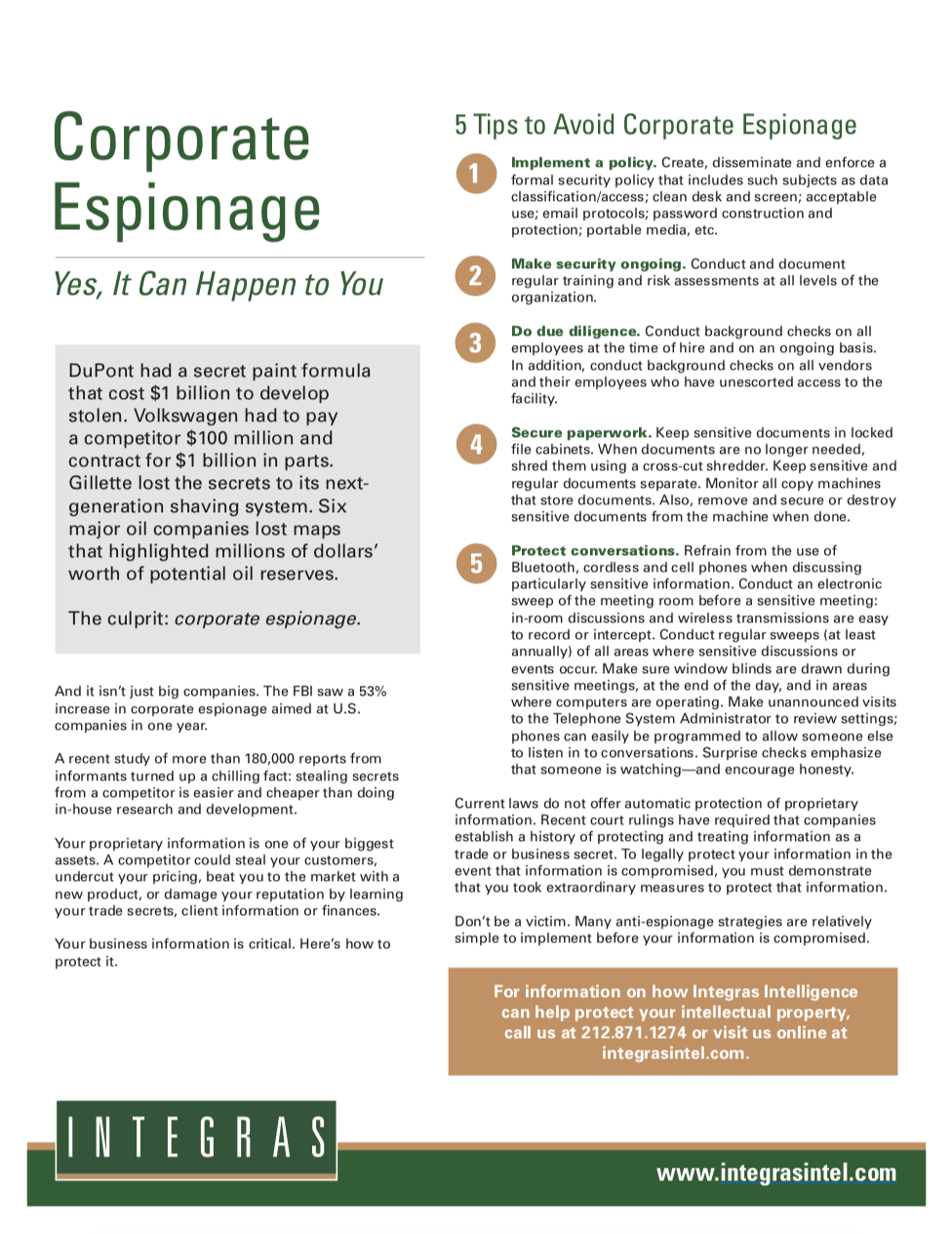

While the Office of the Director of National Intelligence has identified China, Russia, and Iran as the three states most capable of committing economic espionage, it also notes that “ountries with closer ties to the United States also have conducted cyber espionage to obtain U.S.

Thus, while the risks associated with economic espionage to a company are clear, they may also represent a national security threat. As seen in recent years, one motive may be to close technological or military gaps. Unlike other forms of espionage in the business sector, such as corporate espionage which serves a commercial purpose, the motives behind economic espionage are not always economic in nature. Typically, economic espionage is directed or sponsored by a foreign power seeking to secure sensitive trade secrets or business information from U.S. The Act also prohibits attempts to steal trade secrets with the intent or knowledge that doing so will benefit a foreign government.

Of these individual defendants, 31 were convicted of economic espionage under § 1831 of the Act the remainder were convicted for theft of trade secrets under § 1832.Įconomic espionage is the act of stealing company trade secrets with the intent or knowledge that doing so “will benefit any foreign government, foreign instrumentality, or foreign agent.” 18 U.S.C. For organizations, the maximum possible fine was increased to “the greater of $10,000,000 or 3 times the value of the stolen trade secret to the organization.” Between 19, there were no fewer than 190 cases against 276 individual defendants for violation sunder the Act. Since the Act’s initial passage, Congress has increased the potential monetary penalties for violations to $5 million. § 1831 can result in a prison sentence of up to 15 years. Government has aggressively enforced the Act against those who have sought to steal trade secrets from companies for the benefit of foreign adversaries.Ĭonvictions for economic espionage in violation of 18 U.S.C. The Act, among other things, criminalized the theft of trade secrets intended to benefit “any foreign government, foreign instrumentality, or foreign agent.” Steep penalties for violations of the Act demonstrated that the United States would take economic espionage extremely seriously. Proponents of the Act claimed foreign entities were actively attempting to steal trade secrets and that the existing laws at the time did not adequately protect their interests. At the time, the principal proponents of the law included business leaders from the then burgeoning Silicon Valley as well as from the aerospace industry. In 1996, President Clinton signed the Economic Espionage Act (the “Act”). By Benjamin Glassman and Colin Jennings on FebruPosted in China, corruption, Department of Justice, Government Investigation, Russia, United States, US Department of Justice


 0 kommentar(er)
0 kommentar(er)
